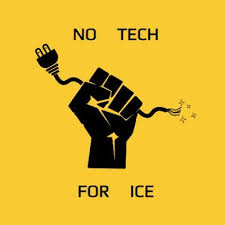- About
- Topics
- Story
- In-Depth
- Picks
- Opinion
- News
- Donate
- Signup for our newsletterOur Editors' Best Picks.Send
Read, Debate: Engage.
| April 22, 2019 | |
|---|---|
| topic: | Economic Inclusion |
| tags: | #blockchain, #refugees, #technology, #Banqu, #Kenya |
| located: | Kenya |
| by: | Bob Koigi |
Banqu, a software technology company launched in 2016 is attempting to do just that and with impressive results. The company is embracing blockchain technology to allow refugees and displaced people to store vital details about themselves in a verifiable and unchangeable network that gives the owners of the information full control. It prevents the storage of information in centralised systems or being owned by governments and big corporations. The innovation, while providing emancipatory tools to vulnerable populations, also hopes to bring over 2.5 billion unbanked global population into the global economy by helping them build a digital profile that allows them to build businesses, access loans and in the process tackle global poverty.
A new user accesses the tool via a mobile phone and creating a profile. They then log in every piece of information about them which is stamped and verified by a third party, who also must be verified. The third-party may include a former employer or school administrator. All this data is then stored in distributed ledger and can be accessed anytime, anywhere.
Hamse Warfa the brains behind the innovation was inspired by a personal experience having arrived in Daadab refugee camp in Northern Kenya from Somalia where he and his parents were fleeing civil war. He was only 12. He was given a piece of paper with a number on it which was his identity, allowing him to access food rations and any other services he needed. For the three years he stayed in the camp, the reality of starting life again with nothing despite having worked hard for it hits home every day. His parents were accomplished businesspeople in Somalia before the war but were reduced to statistics at the camp.
“I want all refugees to be able to build transaction-based economic identities that allow them to thrive, including getting loans and accessing credit for things like businesses and eventually homes. BanQu is for the world’s poor, refugees and stateless people so they can live their lives like the rest of us” he said in an interview with Simon Stumpf, the director of venture and fellowship at.
It is a gospel that has reverberated among financial institutions, development organisations and the poor who have warmed up to Banqu. Since its inception, it is now being used by over 25,000 people spread across four continents.
“With up to one billion people globally not having any form of identity, technology still remains the best way to give them a name and say. Innovations like Banqu that embrace the blockchain technology are creating a new and trustworthy avenue of managing crucial data by moving it from centralised databases, and placing it in the hands of the actual owners of that data, which has created a new form of empowerment to these vulnerable groups,” said Dr. Riby Okoth a lecturer at the School of Security, Diplomacy and Peace Studies of Kenyatta University in Kenya.
He further adds that this phenomenon enlists refugees, the poor and unbanked to contribute to the global economy by moving them away from handouts and reliance on aid to self-sufficiency by running businesses or accessing jobs. “Having the refugees, for example, use their digital footprint to access financial services or job opportunities as the rest of the population not only reduces the culture of dependency but opens up the global economy to more participants who are growing it rather than depending on it,” he added.
Buoyed by the remarkable response and appetite for its innovation, Banqu hopes to lift over 100 million people from poverty by 2028 through the use of blockchain technology.
By copying the embed code below, you agree to adhere to our republishing guidelines.
